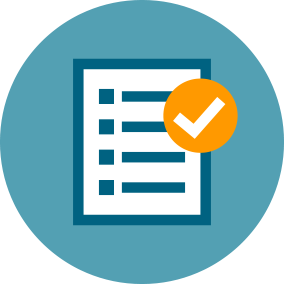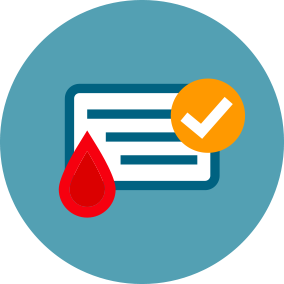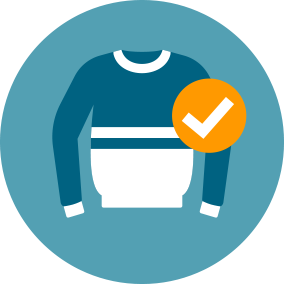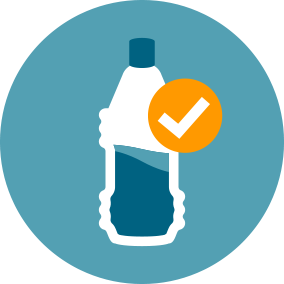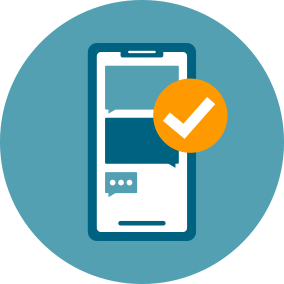Serious Infections: ENJAYMO is a prescription medicine that affects your immune system. ENJAYMO may lower the ability of your immune system to fight infections. ENJAYMO increases your chance of getting serious infections including those caused by encapsulated bacteria, including Neisseria meningitidis, Streptococcus pneumoniae, and Haemophilus influenzae type B. These serious infections may quickly become life-threatening or cause death if not recognized and treated early.
You must complete or be up to date with the vaccines against Streptococcus pneumoniae and Neisseria meningitidis at least 2 weeks before your first dose of ENJAYMO.
If your healthcare provider decides that urgent treatment with ENJAYMO is needed, you should receive vaccinations as soon as possible.
If you have been vaccinated against these bacteria in the past, you might need additional vaccines before starting ENJAYMO. Your healthcare provider will decide if you need additional vaccines.
Vaccines do not prevent all infections caused by encapsulated bacteria. Call your healthcare provider or get emergency medical care right away if you get any of these signs and symptoms of a serious infection:
fever with or without shivers or chills
fever and a rash
fever with chest pain and cough
fever with breathlessness or fast breathing
fever with high heart rate
headache with nausea or vomiting
headache and fever
headache with stiff neck or stiff back
confusion
body aches with flu-like symptoms
clammy skin
eyes sensitive to light
Infusion-related reactions: Treatment with ENJAYMO may cause infusion-related reactions, including allergic reactions that may be serious or life-threatening. Your healthcare provider may slow down or stop your ENJAYMO infusion if you have an infusion-related reaction and will treat your symptoms if needed. Tell your healthcare provider right away if you develop symptoms during your ENJAYMO infusion that may mean you are having an infusion-related reaction, including:
shortness of breath
nausea
dizziness
decrease in blood pressure
injection site reaction
rash
chest discomfort
flushing
itchy skin
rapid heartbeat
headache
Risk of autoimmune disease: ENJAYMO may increase your risk for developing an autoimmune disease such as systemic lupus erythematosus (SLE). Tell your healthcare provider and get medical help if you develop any symptoms of SLE, including:
joint pain or swelling
rash on the cheeks and nose
unexplained fever
If you have CAD and you stop receiving ENJAYMO, your healthcare provider should monitor you closely for the return of your symptoms after you stop ENJAYMO. Stopping ENJAYMO may cause the breakdown of your red blood cells due to CAD return. Symptoms or problems that can happen due to red blood cell breakdown include:
Tiredness
Rapid heart rate
Shortness of breath
Blood in your urine or dark urine
The most common side effects of ENJAYMO include:
increase in blood pressure
joint pain
dizziness
urinary tract infection
headache
feeling tired or weak
respiratory tract infection
nausea
cough
bacterial infection
runny nose
swelling in lower legs or hands
bluish color to the lips and skin
changes in color or sensation in the fingers and toes (Raynaud's phenomenon)
These are not all the possible side effects of ENJAYMO. Call your doctor for medical advice about side effects.
Before receiving ENJAYMO, tell your healthcare provider about all of your medical conditions, including if you:
have a fever or infection, including a history of human immunodeficiency virus (HIV), hepatitis B, or hepatitis C.
have an autoimmune disease such as systemic lupus erythematosus (SLE), also known as lupus.
are pregnant or plan to become pregnant. It is not known if ENJAYMO will harm your unborn baby.
are breastfeeding or plan to breastfeed. It is not known if ENJAYMO passes into your breast milk.
Tell your healthcare provider about all the medicines you take, including prescription and over-the-counter medicines, vitamins, and herbal supplements.
Know the medicines you take. Keep a list of them to show your healthcare provider and pharmacist when you get a new medicine.
ENJAYMO® is a prescription medicine used to treat the breakdown of red blood cells (hemolysis) in adults with cold agglutinin disease (CAD).
It is not known if ENJAYMO is safe and effective in children.





